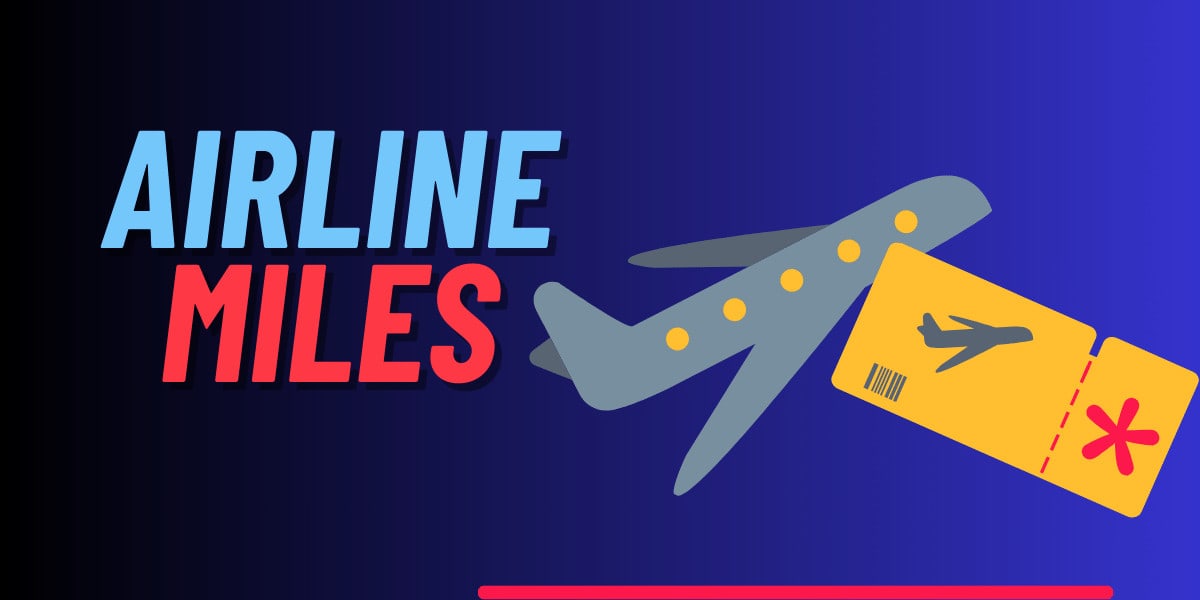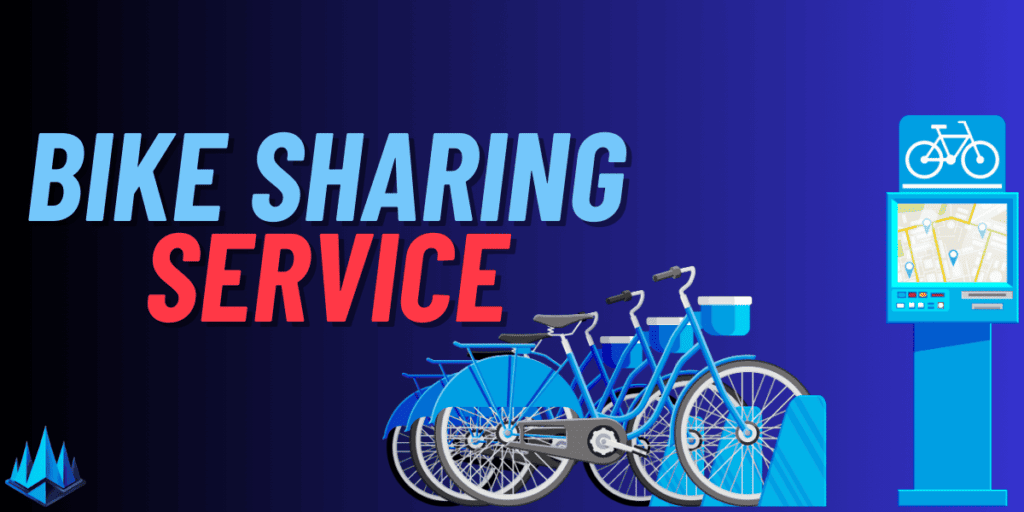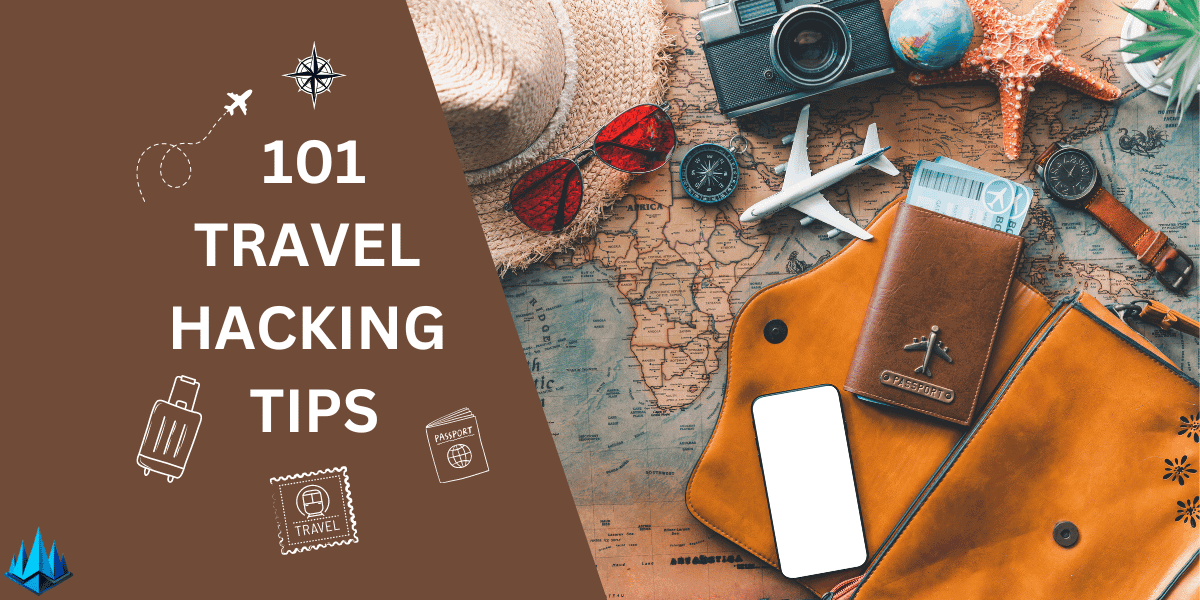Are you feeling overwhelmed by the complexities of modern travel? You’re not alone. With ever-changing regulations, rising costs, and the endless quest for the best experiences, navigating the world of travel can be daunting. But what if I told you that mastering the art of travel hacking could turn these challenges into opportunities?
Travel hacking isn’t just about saving money; it’s about enhancing your travel experience. This comprehensive guide unveils 101 essential travel hacking tips that will empower you to travel smarter, cheaper, and more efficiently in 2024. Whether you’re a seasoned globetrotter or planning your first big trip, these insights will revolutionize how you approach travel.
- Travel hacking can simplify and enhance your travel experience.
- These 101 tips cater to both beginners and experienced travelers.
- Learn to travel more efficiently, saving both time and money.
- Discover innovative strategies to make the most of your journeys in 2024.
What Are the Best Travel Hacking Strategies for 2024?
1. Maximizing Credit Card Rewards
Utilizing credit cards specifically for their travel rewards can be a game-changer. By strategically using cards that offer high points on travel-related purchases, I’ve accumulated enough points for entire trips. It’s all about choosing the right card and understanding its reward structure.

2. Leveraging Airline Miles
One of my most successful travel hacks has been mastering airline miles. By choosing one airline as my primary carrier and sticking to it, I’ve earned elite status, with significant benefits like free upgrades and lounge access.

3. Smart Packing Techniques
Traveling light can save you money and time. I learned to pack only essentials and use compression bags to save space. This approach not only eases mobility but also helps avoid checked baggage fees.
4. Flexible Travel Dates
Being flexible with your travel dates can lead to massive savings. I often use tools that allow me to view price trends and book when prices are lowest. This flexibility has led to some unexpected and budget-friendly adventures.
5. Utilizing Budget Airlines
Budget airlines are a boon for travel hackers. While amenities are fewer, the cost savings are significant. I compare prices with budget carriers and often find deals too good to pass up.
6. Off-Season Travel
Traveling during the off-season has allowed me to enjoy destinations without the crowds and at a fraction of the price. Accommodations and activities are often much cheaper, making luxury experiences more accessible.
7. House Sitting or Swapping
House-sitting or swapping can mean free accommodation. I’ve used various platforms to find opportunities to stay in beautiful homes worldwide without paying a dime for lodging.
8. Joining Travel Forums and Groups
Being part of online travel communities has provided me with insider tips and exclusive deals. These forums are a treasure trove of information, from finding cheap flights to discovering hidden gems.
9. Taking Advantage of Layovers
Long layovers can be an opportunity to explore a new city. Instead of seeing them as a hassle, I use them to experience a place I might not have visited otherwise, often without extra flight costs.
10. Booking Accommodations with Free Cancellation
Flexibility is critical in travel hacking. Booking accommodations that offer free cancellation allows me to change plans or take advantage of a last-minute deal without penalty.
11. Using Incognito Mode for Booking
Prices can increase based on your search history. I always use incognito mode when booking flights and hotels to ensure I see the lowest prices available.

12. Earn and Burn Points Philosophy
‘Accumulating points is only half the battle; using them effectively is crucial. I follow the ” earnn and burn’ philosophy, using points before they devalue, ensuring I get the best bang for my buck.’Accumulating points is only half the battle; using them effectively is crucial. I follow the ‘earn and burn’ philosophy, using points before they devalue, ensuring I get the best bang for my buck.
13. Local SIM Cards for Data
Buying a local SIM card for data is often cheaper and more reliable than international plans. This hack has kept me connected without breaking the bank.
14. Avoiding Currency Exchange at Airports
Airport currency exchanges typically have unfavorable rates. I use local ATMs or currency exchange services in the city for better rates, saving significantly over time.
15. Travel Insurance Hacks
Choosing the right travel insurance can save money and provide peace of mind. I look for policies that cover precisely what I need, avoiding overpriced packages with unnecessary extras.
16. Leveraging Stopovers for Extra Trips
Some airlines offer free or low-cost stopovers in their hub cities. I’ve used these to explore additional destinations at no extra flight cost, effectively getting two trips for the price of one.
17. Free Walking Tours
Free walking tours are budget-friendly and great for learning about a new place. I’ve found these tours to be informative and an excellent way to meet fellow travelers.
18. Eating Like a Local
Eating where locals eat has saved me money and led to some of the most authentic culinary experiences. Street food and local markets are often cheaper and tastier than tourist traps.
19. Using Public Transportation
Public transportation is usually much cheaper than taxis or rental cars. I’ve found that navigating the local transit system adds an authentic touch to the travel experience.
20. Early Morning Flights
Booking the day’s first flight is often cheaper and less prone to delays. I’ve saved money and enjoyed quieter airports by choosing early departures.
21. Travel Reward Programs
Joining multiple travel reward programs has been a game-changer. I sign up for every program available, from airlines to hotels and even dining rewards. The points accumulate surprisingly fast and lead to significant savings.
22. Exploring Alternative Airports
Flying into less popular airports can dramatically reduce costs. I’ve saved hundreds by choosing an airport just a bit further from my final destination and then using local transport to reach my target city.
23. Night Trains and Buses
Using night trains and buses has saved me the cost of a night’s accommodation and allowed me to wake up in a new destination, ready to explore.
24. Travel During Shoulder Season
Traveling during the shoulder season – the period between peak and off-peak – strikes a balance between cost and weather. I’ve enjoyed many destinations with fewer crowds and moderate prices during these periods.
25. Student and Youth Discounts
If you qualify, taking advantage of student and youth discounts can lead to substantial savings on transport, attractions, and accommodations. Always carry your student or youth ID when traveling.
26. Booking Apartments Instead of Hotels
Renting apartments instead of hotels can be a budget-friendly option, especially for extended stays. I’ve enjoyed having extra space and the ability to cook meals, reducing food costs.
27. Volunteering Abroad
Volunteering abroad has allowed me to extend my travels while giving back. Many programs offer free room and board in exchange for work, providing a unique and fulfilling travel experience.
28. Travel Blogging
Starting a travel blog can open doors to unique experiences and savings. As a blogger, I’ve been offered discounts and even free stays in exchange for coverage on my blog.
29. Avoiding Tourist Hotspots for Accommodations
Staying just outside major tourist areas can significantly reduce accommodation costs. I’ve often found quieter, more authentic neighborhoods just a short walk or ride from the main attractions.
30. Cooking Your Meals
Cooking meals, especially when traveling in expensive countries, can save money. Staying in places with kitchen facilities has been a critical strategy in my travel budgeting.
31. Cashback Sites and Apps
Using cashback sites and apps for booking flights, hotels, and activities has helped me recover some of my spending, which I then redirect into future travel funds.
32. Staying in Hostels
Hostels are not just for young backpackers. They offer affordable accommodations and a chance to meet fellow travelers. Many now offer private rooms, combining the social aspect with privacy.
33. Couchsurfing
Couchsurfing has allowed me to stay for free while meeting locals. It’s a community of travelers and hosts who offer a couch or spare room at no cost.
34. Carry-On Only
Traveling with carry-on luggage only has saved me time and fees on many airlines. It also makes moving around easier and faster, especially on multi-destination trips.
35. Researching Free Attractions
Many cities offer free attractions, from museums with no entry fee to public parks and historic sites. I constantly research free things to do before I travel, which enriches the experience without impacting my budget.
36. Traveling with a Group
Group travel can offer significant savings, as costs for accommodation, transportation, and activities can often be split. It also adds a social element to the journey.
37. Using Bike-Sharing Services
I’ve found bike-sharing affordable and enjoyable in cities where it’s available. It’s cheaper than taxis and more flexible than public transport.

38. Airport Lounge Access with Credit Cards
Some credit cards offer complimentary airport lounge access, a perk I’ve enjoyed for relaxing and enjoying food and drinks without extra cost during layovers.
39. Free Airport WiFi
Instead of using data, I use free WiFi, available at most airports. It’s perfect for last-minute research or downloading entertainment for the flight.
40. International Driving Permit
I’ve found having an International Driving Permit invaluable for those places where driving is necessary. It’s recognized globally and can save a lot of hassle with car rentals.
41. Taking Advantage of City Passes
City passes often offer great value, bundling entry fees to multiple attractions for a discounted rate. I’ve saved significantly in major cities using these passes for museums, tours, and public transportation.
42. Using Rail Passes for Multi-City Trips
Rail passes like the Eurail or Japan Rail Pass can be cost-effective for multi-city trips in certain countries. They offer flexibility and can be cheaper than individual train tickets, especially for frequent travel.
43. Finding Work Abroad
Working while traveling, such as teaching English or seasonal jobs, can extend your travel duration significantly. I’ve met many travelers who fund their adventures this way, gaining unique experiences and insights into different cultures.
44. Travel Credit Cards with No Foreign Transaction Fees
Using a credit card that doesn’t charge foreign transaction fees saves money on every purchase abroad. It’s a small saving that adds up, especially on longer trips.
45. Staying in Monasteries or Religious Guesthouses
For a unique experience, staying in monasteries or religious guesthouses can be an affordable alternative. These accommodations often come with a peaceful and spiritual atmosphere.
46. Attend Free Local Events
Many cities host free events, from concerts in the park to street festivals. These events save on entertainment costs and glimpse local culture and community.
47. Hitchhiking in Safe Countries
Hitchhiking can be an accessible mode of transportation in countries where it’s safe and familiar. It’s also a way to meet locals and fellow travelers, though safety should always be a priority.
48. Using WhatsApp for Communication
I use WhatsApp for text, voice, and video calls to avoid high international fees. It’s widely used globally and only requires a data connection.
49. Following Travel Deals Websites and Alerts
Signing up for travel deal alerts from websites and forums has led me to some incredibly cheap fares and last-minute offers that I wouldn’t have found otherwise.
50. Traveling with a Water Bottle with Filter
Carrying a water bottle with a built-in filter has saved money on bottled water and has been environmentally friendly. It’s beneficial in countries where tap water isn’t safe to drink.
51. Avoiding Peak Travel Times
Traveling outside peak times – like early morning or late night – often means cheaper fares and less crowded transport. I’ve enjoyed quieter journeys and more affordable tickets by avoiding rush hours.
52. Long-Term Rental Negotiations
For extended stays, negotiating the rent for a long-term stay can lead to substantial savings. Landlords are often willing to offer a discount for longer commitments.
53. Using Trusted Housesitters
For longer trips, using platforms like Trusted Housesitters can secure free accommodation in exchange for pet-sitting or house-sitting. It’s a win-win for both the homeowner and the traveler.
54. Participating in Time-Share Presentations
Participating in time-share presentations can sometimes offer free or heavily discounted stays. While they require sitting through a sales pitch, the rewards can be worth it for the savings.
55. Using Apps for Last-Minute Hotel Deals
Apps like HotelTonight offer last-minute deals on unsold hotel rooms, often at a fraction of the regular price. I’ve found some great bargains on high-quality accommodations this way.
56. Booking Flights in the Middle of the Week
Flight prices can fluctuate based on the day of the week. I’ve found that booking on a Tuesday or Wednesday often results in lower fares than on weekends.
57. Exploring Multiple Flight Search Engines
Using various flight search engines and comparing prices can unearth better deals. Each machine has its own set of airline partners and special rates.
58. Backpacking and Camping
Backpacking and camping can be an inexpensive way to travel, especially in areas with stunning natural landscapes. It’s not only budget-friendly but also offers an immersive nature experience. There are tons of travel hacks for camping, including ways to make camping more comfortable.
59. Traveling with a Reusable Shopping Bag
Carrying a reusable shopping bag helps the environment and avoids charges for plastic bags in many countries. It’s a small but practical hack.
60. Joining Frequent Flyer Programs
If you don’t fly often, joining frequent flyer programs is worthwhile. The miles can increase over time, leading to free flights or upgrades.
61. Exploring Alternative Accommodation Platforms
Beyond the usual hotel booking sites, exploring platforms like Airbnb or local guesthouses can offer unique and often more affordable stays. I’ve discovered charming places that provide a more authentic experience than traditional hotels.
62. Using Multi-City Flight Searches
The multi-city search option is often cheaper when planning trips involving multiple destinations than booking separate one-way tickets. It’s a great way to see more places without significantly increasing the travel budget.
63. Avoiding In-Room Snacks and Minibars
Minibar items are notoriously overpriced. I avoid them and instead stock up on snacks and drinks from local supermarkets, saving money and enjoying local treats.
64. Choosing Lesser-Known Destinations
Opting for less popular destinations can lead to surprising discoveries and significant savings. These places often offer authentic experiences without the crowds and high prices of tourist hotspots.
65. Using Google Flights’ Explore Feature
Google Flights’ Explore tool allows you to see the cheapest destinations from your airport within your travel dates. I’ve found amazing deals to destinations I hadn’t even considered.
66. Opting for Overnight Transportation
Taking overnight buses or trains can save a night’s accommodation cost. It’s a strategy I’ve used for longer distances, waking up at my next destination without the price of a hotel.
67. Earning Money Through Travel Photography
If you have a knack for photography, selling your travel photos can be a way to earn extra cash. Websites like Shutterstock or Adobe Stock are platforms where I’ve sold my photos.
68. Travel Nursing for Healthcare Professionals
For healthcare professionals, travel nursing can be a way to see the world. Agencies offer short-term contracts in different locations, often with housing stipends, making it a viable way to travel and work.
69. Use of Travel Agents for Complex Trips
While I usually book trips myself, using a travel agent for more complex itineraries can sometimes save money and time. They often have access to deals not available to the public.
70. Participating in Cultural Exchange Programs
Cultural exchange programs like Workaway or WWOOF provide opportunities for free accommodation and meals in exchange for a few hours of work, offering a unique and affordable way to travel.
71. Joining Local Meetups and Events
Local meetups or expat events can be a great way to meet people and get insider tips on the best deals in the area. I’ve found fantastic recommendations through these gatherings.
72. Eating at University Campuses
University campuses often have affordable dining options. When traveling in expensive cities, I’ve eaten at campus cafeterias for a fraction of the cost of eating out.
73. Using Ride-Sharing Apps
In cities with ride-sharing apps, they can be a cheaper alternative to taxis. I’ve also shared rides with fellow travelers to split the costs.
74. Finding Free WiFi Spots
Cafés, libraries, and public spaces often offer free WiFi. I use apps like WiFi Map to find spots near me, saving on data charges.
75. Traveling with a Lightweight Laptop or Tablet
A lightweight laptop or tablet instead of a full-sized notebook saves space and weight for longer trips. As a blogger, I must keep in touch with family.
76. Using VPN for Cheaper Flights and Hotels
Sometimes, prices for flights and hotels vary based on location. Using a VPN to change my virtual location has sometimes led to cheaper booking options.
77. Avoiding Dynamic Currency Conversion
When paying with a card abroad, I always choose to be charged in the local currency. Dynamic currency conversion rates are usually poor compared to my card’s speed.
78. Checking Baggage Allowance Before Flying
I always check baggage allowances before flying to avoid unexpected fees. Some budget airlines have strict limits, and being aware of them has saved me from costly charges.
79. Teaching English Online
Teaching English online is a flexible way to earn income while traveling. It requires minimal equipment and can be done anywhere with a good internet connection.
80. Taking Advantage of Free Museum Days
Many museums offer free entry on certain days of the month. Planning visits around these days can provide cultural enrichment without the cost.
81. Avoiding Roaming Charges
I always switch off data roaming before landing in a new country to avoid high charges. Instead, I rely on WiFi or local SIM cards for internet access.
82. Using Social Media for Local Insights
Social media platforms can be a goldmine for travel tips and local insights. I follow my destinations’ local bloggers and tourism pages to discover hidden gems and current events.
83. Participating in Frequent Diner Programs
Just like frequent flyer programs, regular diner programs can offer rewards for dining out. I’ve earned free meals and exclusive discounts through these programs, especially in larger cities.
84. Learning Basic Local Language Phrases
Knowing basic phrases in the local language enriches the travel experience and can lead to better deals in markets and local shops. It’s a sign of respect that’s often appreciated.
85. Using Price Tracking Tools for Flights and Hotels
Price tracking tools notify you of price drops for flights and hotels. I’ve set alerts for my desired destinations and dates, allowing me to book when prices are at their lowest.
86. Exploring by Foot
Walking around a city is free and offers a more intimate experience of the locale. I’ve discovered quaint cafes, unique shops, and street art that I would have missed otherwise.
87. Traveling with a First-Aid Kit
Carrying a basic first-aid kit helps avoid the need for expensive pharmacy visits for minor ailments. It’s a small but essential part of my travel gear.
88. Avoiding Data Overages with Offline Maps
Downloading offline maps on my phone prevents data overages and ensures I can navigate without an internet connection. Apps like Google Maps allow for easy offline map downloads.
89. Staying Hydrated with Reusable Bottles
Carrying a reusable water bottle keeps me hydrated without the cost of buying bottled water. In countries with safe drinking water, it’s a no-brainer for savings and sustainability.
90. Utilizing Free Airport Transfers
Some credit cards and travel packages include complimentary airport transfers. I always check this perk as it can save significant money on taxi fares.
91. Visiting Local Markets
Local markets are not just for shopping; they’re cultural experiences. They are perfect for inexpensive meals, fresh produce, and unique souvenirs.
92. Using Contactless Payment Methods
Contactless payments, like Apple Pay or Google Wallet, are often more convenient and secure than carrying cash. Many countries have widely adopted contactless transactions, making it a hassle-free way to pay.

93. Purchasing Souvenirs Away from Tourist Spots
Buying souvenirs away from main tourist areas can lead to better prices and more authentic goods. I enjoy exploring local shops and markets for unique finds.
94. Subscribing to Airline Newsletters
Subscribing to airlines’ newsletters has alerted me to flash sales and special promotions, leading to unexpectedly cheap flight bookings.
95. Using a Money Belt or Hidden Wallet
I use a money belt or hidden wallet to keep money and documents safe. It’s a simple way to ensure security, especially in crowded tourist areas.
96. Traveling with a Compact Camera or Smartphone
Instead of a bulky DSLR, traveling with a compact camera or a smartphone for photography is more convenient and lighter. Modern smartphones have excellent cameras suitable for most travel photography needs.
97. Checking Mobile Plans for International Options
Before traveling, I check my mobile plan’s international options. Some carriers offer affordable travel add-ons, which can be more convenient than buying a local SIM card.
98. Attending Timeshare Presentations for Perks
Attending timeshare presentations can sometimes offer perks like free meals, tours, or accommodation. While they require time and sitting through sales pitches, the rewards can be substantial.
99. Using Credit Card Concierge Services
Some premium credit cards offer concierge services, which can be invaluable for making travel arrangements, especially in unfamiliar destinations.
100. Enjoying Nature and Public Spaces
Exploring nature and public spaces like beaches, parks, and hiking trails offers enriching experiences without any cost. I always make time to enjoy the natural beauty of my travel destinations.
101. Keeping a Travel Journal
Keeping a travel journal helps reflect on experiences and track spending. It’s a budgeting tool and an excellent way to preserve memories from each trip.
How Travel Hacking Can Save You Time, Money & Stress
Embracing Travel Hacking 101 isn’t just about cutting costs; it’s a comprehensive approach to making your travel experiences smoother, more affordable, and enjoyable. Imagine bypassing the usual stressors of travel – the hefty expenses, time-consuming planning, and those unexpected hiccups. Travel hacking equips you with strategies to navigate these challenges efficiently.
From leveraging points and miles for free flights and stays to discovering the art of packing light and intelligence, each hack is a step towards a more streamlined journey.
It’s about knowing the right time to book flights, the best ways to find unique accommodations, and even tips on immersing yourself in local cultures without overspending.
Adopting these travel hacking techniques transforms how you travel, turning every trip into an enriching and economical adventure. This is the essence of Travel Hacking 101 – travel more intelligently, not more complex, and watch as the world opens up with possibilities, minus the stress and strain on your wallet.
Final Thoughts
As we wrap up our journey through the world of Travel Hacking, it’s clear that this isn’t just a set of tips and tricks; it’s a mindset shift. Embracing Travel Hacking means stepping into a world where travel is more accessible, less stressful, and infinitely rewarding.
It’s about breaking free from the traditional constraints of travel, uncovering cost-effective methods, and discovering shortcuts that make the journey as enjoyable as the destination. Whether leveraging loyalty programs, finding hidden gems off the beaten path, or knowing the best time to book your flights, each aspect of Travel Hacking opens up new possibilities.
It transforms how we perceive and approach travel, turning each trip into a well-orchestrated adventure tailored to our preferences and budgets. So, as you embark on your next travel adventure, remember that the essence of Travel Hacking lies in exploring the world on your terms, making each experience uniquely yours.
Frequently Asked Questions
What is Travel Hacking?
Travel Hacking refers to strategies to optimize travel experiences, primarily focusing on reducing costs, maximizing rewards from loyalty programs, and utilizing resources effectively. It includes using credit card points for flights and hotels, finding the best travel deals, and employing clever packing techniques to save time and money.
Can Travel Hacking Save Me Money?
Absolutely. Travel Hacking can lead to significant savings on travel expenses. By strategically using credit card rewards, taking advantage of airline and hotel loyalty programs, and being flexible with travel dates and destinations, you can dramatically reduce the cost of flights, accommodations, and other travel-related expenses.
Is Travel Hacking Legal and Ethical?
Yes, Travel Hacking is both legal and ethical. It involves using existing travel and credit card reward programs to your advantage. It’s about being bright with bookings, utilizing rewards, and staying informed about the best travel deals and strategies. It does not involve any deceitful practices.
Do I Need a Lot of Credit Cards for Travel Hacking?
Not necessarily. While having multiple credit cards can potentially increase your points and rewards, effective Travel Hacking can be achieved even with a single, well-chosen credit card. The key is to select cards that align best with your travel goals and spending habits.
How Do I Get Started with Travel Hacking?
To start Travel Hacking, assess your current travel goals and spending habits. Sign up for a rewards credit card that aligns with these goals, join airline and hotel loyalty programs, and stay informed about current travel deals and tips. It’s also important to keep track of your points and rewards to optimize their usage.











